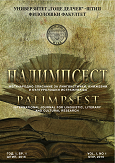PHRASEOLOGY AS A TRANSLATION PROBLEM AMONG EFL UNIVERSITY STUDENTS IN KOSOVO
PHRASEOLOGY AS A TRANSLATION PROBLEM AMONG EFL UNIVERSITY STUDENTS IN KOSOVO
Author(s): Kadri Krasniqi, Besarta KrasniqiSubject(s): Language and Literature Studies, Theoretical Linguistics, Translation Studies, Phraseology
Published by: Универзитет »Гоце Делчев« - Штип
Keywords: Phraseology; translation; EFL students; idioms and collocations.
Summary/Abstract: The demand for clear and accurate translation either for business, educational or culturally adoptable purposes is increasing every day. The above demand is affected considerably by the translation of a set of or fixed expressions such as idioms, phrasal verbs and other types of multi-word lexical units or in other words called ‘Phraseology’. Therefore, phraseology translation is an important skill or a technique for any English as a Foreign Language (EFL) university students when translating from source language into target one or vice versa, which also means that an EFL student (either as a translator or interpreter) must also understand not only the economical, and political, but also the cultural differences between two cultures or parties in order to create a smooth and transparent communication between them. Since phraseology translation is considered as a difficult skill or technique to be equipped with, in order to develop or improve EFL students’ phraseology translation technique, it is the universities or faculties duty to use and adapt various programs or subjects as well as find a way to implement them and assist the teaching of the phraseology translation process. The objective of this study is to find out whether phraseology translation is considered a translation problem among the EFL university students in Kosovo, and how do they cope or deal with the phenomena when they are encountered with. The results of the study revealed that despite almost all students of both universities consider themselves as good or confident translator/interpreter, but when it came to translating phraseology, they lacked knowledge or techniques and needed improvements especially in regard to idioms and sayings. The study also provides advice and recommendations for universities and new generations of EFL university students who would like to become skilful translators or interpreters and at the same time compete effectively in this demanding globalized market.
Journal: Палимпсест, Меѓународно списание за лингвистички, книжевни и културолошки истражувања
- Issue Year: 8/2023
- Issue No: 15
- Page Range: 61-73
- Page Count: 12
- Language: English

